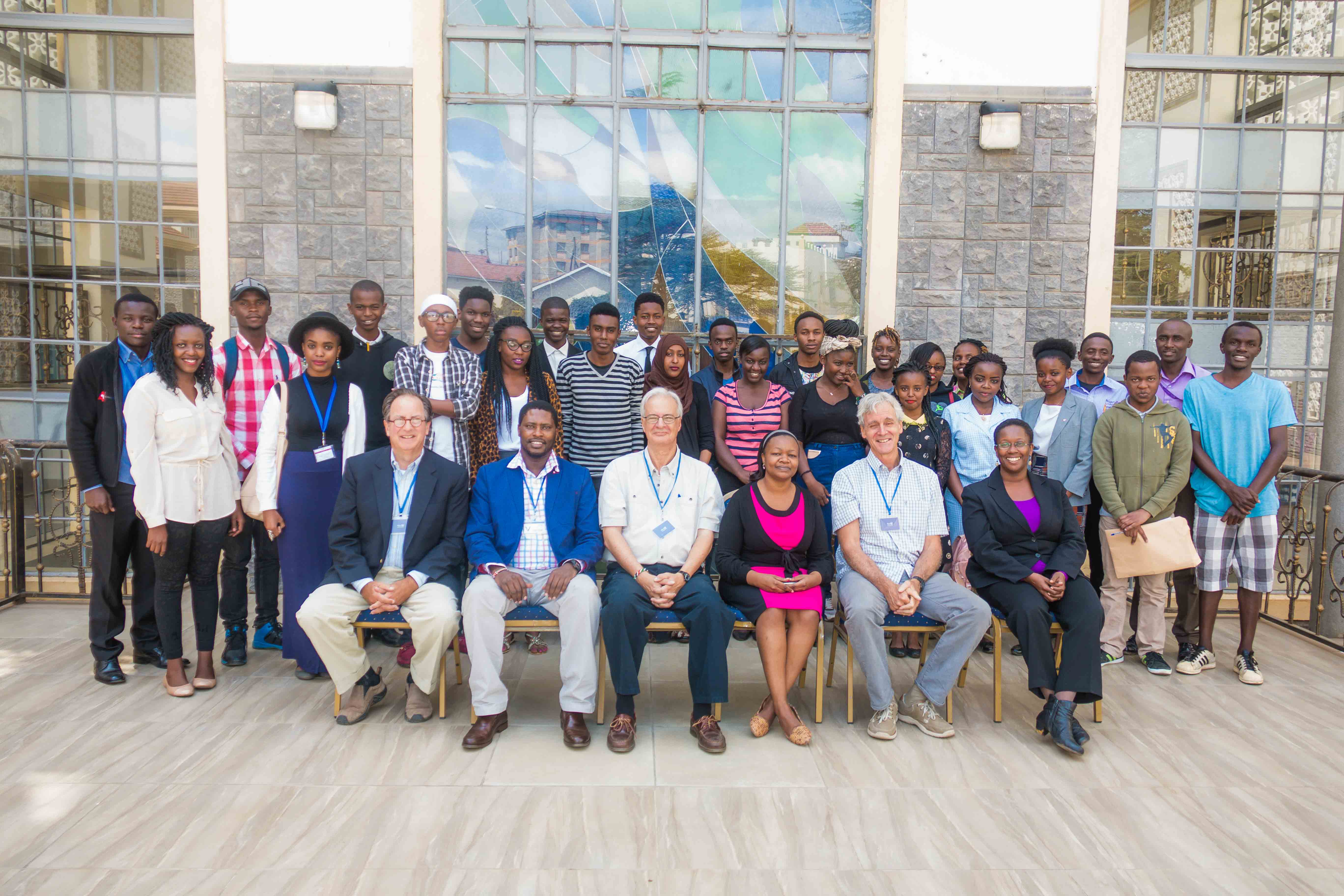By Wallace Gichunge
The Centre for Media and Information Literacy in Kenya (CMIL-Kenya) organised a Media Literacy Workshop for students and staff of Riara University on July 25thand 26th at the University’s conference room. The 2-day workshop was organized in partnership with Riara University Multimedia Journalism Department, Project Look Sharp (Ithaca College, USA) and Media Literacy Clearing House (South Carolina, USA).
Facilitating the workshop were three renowned media literacy practitioners and authors from USA and Canada, Prof. Chris Sperry, Dr. Irving Rother and Mr. Frank Baker who are on a “media literacy missionary work” in Africa and other parts of the world.
The objective of the workshop was to introduce the student group to key concepts of media and information literacy and the role of MIL in their personal and professional lives.
At least 45 students and 5 lecturers mainly from journalism faculty at Riara and neighbouring universities attended the workshop which explored various media literacy topics such as:
- Introduction to Media and Information Literacy
- Key concepts of Media and Information Analysis
- Media Literacy Education and Critical Thinking
- Visual Literacy and Photojournalism
- An analysis of Western Media Portrayal of Africa and vice versa
- An overview of key Issues in Journalism Practice in Kenya
- The role of MIL in Personal and Professional lives
CMIL-Kenya Executive Director Wally Gichunge made a presentation on MILCLICKS, a new initiative by UNESCO and GAPMIL to improve MIL awareness creation across the globe by use of social media. Participants were taken through the objectives of the initiative, i.e. Use social media to train people to become more media and information literate and to raise awareness about the importance of media and information literacy. The themes for UNESCO MILCLICKS social media training are:
- Governance, citizenship and freedom of expression
- Access to information and knowledge for all citizens
- Development of media, libraries, Internet and other information providers
- Education, teaching, and learning – including professional development
- Linguistic and cultural diversity as well as intercultural and interfaith dialogue
- Women, children and youth, persons with disabilities and other marginalized social groups
- Health and wellness
- Business, industry, employment and sustainable economic development
- Agriculture, farming, wildlife protection, forestry and natural resources conservation as well as other areas.
Notes: Credentials of MIL trainers in Nairobi
- Prof. Chris Sperry; the Director of Curriculum and Staff Development for Project Look Sharp, a media literacy initiative at Ithaca College, New York;
- Dr. Irving Lee Rother; (McGill University, Canada) a multi-award winner media educator with over thirty years of experience teaching, consulting and designing curriculum at the school, university, provincial and international levels;
- Mr. Frank W Baker; author of three books, most recently “Media Literacy in the K12 Classroom” (ISTE). Baker has also contributed two chapters to “Mastering Media Literacy (Solution Tree Press.) He maintains the Media Literacy Clearinghouse website, www.frankwbaker.com. He has written teaching standards for English/Language Arts and Visual/Performing Arts in South Carolina where he resides.
